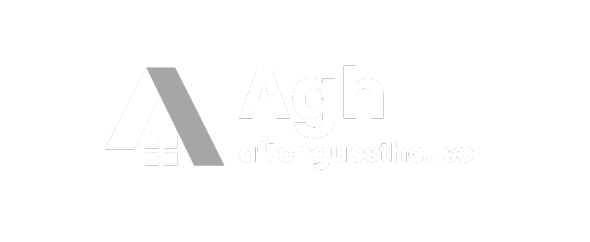Understanding future housing market trends is crucial. Many people wonder about the direction of US house prices. This guide offers an important forecast for 2025. It helps you prepare for potential changes. Knowing what to expect can save you money. It can also help you make smart decisions. We will explore key factors influencing house prices. This includes economic shifts and supply and demand. Get ready to navigate the housing market with confidence. This information is vital for buyers and sellers alike. It is also important for current homeowners. Future house prices affect everyone.
Planning
Careful planning is essential for any major financial decision. This is especially true when dealing with real estate. The housing market is always changing. Preparing now can prevent future problems. It helps you seize opportunities. Consider all angles before making a move. Your financial health depends on good planning. Do not rush into big decisions. Take your time to understand the market. This section outlines key considerations. They will help you plan for 2025 house prices.
Key Considerations
-
Economic Growth and Stability: The overall health of the US economy greatly impacts house prices. A strong economy often means more jobs. More jobs lead to higher incomes. Higher incomes allow more people to buy homes. This increases demand for housing. A stable economy builds consumer confidence. People feel more secure about large purchases. Watch for GDP growth reports. Pay attention to unemployment rates. These indicators show economic strength. They directly influence housing market activity. Economic stability encourages investment. It supports steady house price growth.
-
Interest Rate Fluctuations: Mortgage interest rates are a major factor. They directly affect affordability. Higher rates make borrowing more expensive. This reduces buying power for many. Lower rates make mortgages cheaper. This encourages more people to buy. The Federal Reserve sets key interest rates. Their decisions impact mortgage rates. Keep an eye on Fed announcements. Understand how rate changes affect your budget. Even small changes can have a big impact. They influence monthly mortgage payments. This affects overall house prices.
-
Housing Supply and Demand: The balance between available homes and buyers is critical. If there are many buyers but few homes, prices rise. This is a seller’s market. If there are many homes but few buyers, prices may fall. This is a buyer’s market. New home construction plays a role. Population growth also affects demand. Local zoning laws can limit new supply. Understand the supply-demand dynamics in your area. This balance heavily influences house prices. It determines market competitiveness.
-
Inflation and Cost of Living: Inflation can impact house prices in several ways. Rising inflation means your money buys less. This can push up construction costs. Higher material and labor costs affect new home prices. Inflation can also lead to higher interest rates. This makes mortgages more expensive. However, real estate can also be a hedge against inflation. Property values may increase with inflation. Monitor inflation reports closely. Understand how it affects your purchasing power. It influences long-term housing costs.
-
Demographic Shifts and Migration: Changes in population demographics affect housing needs. Younger generations entering the housing market create demand. Older generations downsizing can increase supply. Migration patterns are also important. People moving to certain regions boost local demand. This can drive up house prices in those areas. People leaving other areas can cause prices to stagnate. Research population trends. Look at job growth in specific regions. These shifts shape future housing demand. They influence where house prices will grow.
Cost Analysis
Analyzing costs is a vital step. It helps you understand the financial landscape. House prices are not just about the sticker price. They include many other expenses. Property taxes, insurance, and maintenance add up. Understanding these costs helps you budget effectively. It prevents unexpected financial burdens. This section provides a price comparison. It helps illustrate potential scenarios for 2025. We will look at different types of homes. This gives a clearer picture of the market. Remember that these are forecasts. Actual prices may vary. However, this analysis provides a useful guide.
Price Comparison
Forecasting US house prices for 2025 involves many variables. We can look at different segments of the market. This table shows potential average price ranges. It also includes estimated year-over-year changes. These figures are illustrative. They help you visualize market movements. Consider these trends when planning your housing strategy. They reflect general market expectations. These expectations are based on current economic models. They also consider historical data. This comparison helps you prepare for future house prices.
| Property Type | Estimated Average Price (2025) | Projected Year-over-Year Change (2024-2025) |
|---|---|---|
| Starter Homes (1-2 bedrooms) | $320,000 – $350,000 | +3.0% to +5.0% |
| Mid-Range Family Homes (3-4 bedrooms) | $450,000 – $500,000 | +2.5% to +4.5% |
| Luxury Properties (4+ bedrooms, high-end) | $800,000 – $1,200,000+ | +1.5% to +3.5% |
| Condominiums/Townhouses | $380,000 – $420,000 | +2.0% to +4.0% |
These figures suggest continued growth in US house prices. However, the rate of growth may moderate. Starter homes might see stronger demand. This is due to affordability challenges. Luxury properties might experience slower growth. This reflects higher interest rates impacting larger loans. Condominiums and townhouses offer an alternative. They often provide more affordable entry points. These trends are general. Local markets will vary. Always research specific areas. Understand local house prices. This table provides a national overview. It helps frame your expectations.
Step-by-Step Guide
Navigating the housing market requires a clear plan. This guide helps you prepare for 2025. It offers practical steps. These steps are for buyers and sellers. They also help current homeowners. Being proactive is key. Do not wait for market changes. Start preparing today. Each step is simple and actionable. Follow them to make informed decisions. This will help you manage your housing future. It will help you adapt to changing house prices. Be ready for what comes next.
DIY Instructions
Preparing for future house prices involves several key actions. These steps empower you. They help you make smart choices. Follow this guide carefully. It simplifies complex processes. You can take control of your housing journey. This is about being prepared. It is about understanding the market. It is about protecting your investment. These instructions are designed for everyone. They are easy to follow. They help you respond to market shifts.
-
Assess Your Financial Situation: Review your income and expenses. Understand your current savings. Check your credit score. Determine your budget for housing. This includes down payment and monthly costs. Know what you can truly afford. This is the first crucial step. It sets realistic expectations. It helps you plan for future house prices.
-
Research Local Market Trends: National forecasts are useful. Local markets can differ greatly. Look at recent sales in your desired area. Check average listing prices. Understand inventory levels. Talk to local real estate agents. They have valuable insights. Local data is essential. It gives you a precise picture. This helps you understand specific house prices.
-
Consult with Financial Experts: Speak to a mortgage lender. Discuss pre-approval options. Talk to a financial advisor. They can help with long-term planning. Get advice on investment strategies. Experts offer personalized guidance. They can clarify complex terms. Their insights are invaluable. They help you navigate the market. They help you understand house prices.
-
Develop a Flexible Strategy: The market can change quickly. Have a backup plan. Consider different scenarios. What if interest rates rise? What if house prices fall? Be ready to adjust your approach. Flexibility is a strength. It allows you to adapt. This minimizes risks. It maximizes opportunities. This helps you react to market shifts.
-
Stay Informed Continuously: Read reliable financial news. Follow housing market reports. Attend local real estate seminars. Subscribe to market updates. Knowledge is power in real estate. Staying informed helps you react quickly. It helps you spot new trends. This ongoing learning is vital. It helps you understand evolving house prices.
Maintenance Tips
Owning a home is a significant investment. Protecting that investment is crucial. This goes beyond just buying the property. It involves ongoing care and smart decisions. Long-term maintenance ensures your home retains its value. It also helps you build equity. These tips focus on financial health. They also cover property upkeep. They help you prepare for future market conditions. They ensure your housing asset remains strong. This is about smart long-term planning. It helps you manage your asset effectively. It helps you respond to changes in house prices.
Long-Term Care
Maintaining your housing investment requires consistent effort. These tips help you protect your asset. They ensure its value grows over time. They also prepare you for market fluctuations. Follow these guidelines for long-term success. They are simple yet effective. They help you stay ahead. This is about smart homeownership. It is about securing your financial future. These tips are for every homeowner. They help you manage your property wisely.
-
Regular Property Upkeep: Perform routine maintenance tasks. Check your roof and gutters. Inspect plumbing and electrical systems. Address small repairs promptly. Preventative maintenance saves money. It avoids major issues later. A well-maintained home holds its value. It is more attractive to future buyers. This directly impacts its resale value. It affects future house prices.
-
Monitor Property Value: Keep an eye on comparable sales. Understand your home’s current market value. Use online tools or consult agents. Knowing your home’s worth is empowering. It helps you make informed decisions. This is important for refinancing. It is also key for selling. Stay updated on local house prices.
-
Review Insurance Coverage: Homeowner’s insurance protects your asset. Review your policy annually. Ensure coverage is adequate. Consider flood or earthquake insurance if needed. Proper insurance protects against unforeseen events. It safeguards your investment. This is a critical part of long-term care. It protects against major losses.
-
Manage Property Taxes: Property taxes are an ongoing cost. Understand how they are assessed. Review your tax bill carefully. Appeal if you believe it is incorrect. Budget for these expenses. They can increase over time. Effective tax management saves money. It helps you control overall housing costs. This impacts your budget for house prices.
-
Build Home Equity: Pay down your mortgage principal. Consider making extra payments. Refinance to a lower rate if possible. Building equity increases your net worth. It provides financial flexibility. Equity can be a source of funds. It strengthens your financial position. This is a smart long-term strategy. It helps you leverage your investment.
Conclusion
Understanding the future of US house prices is essential. This guide provided a comprehensive forecast for 2025. We explored key economic factors. Interest rates, supply, and demand all play a role. We also looked at demographic shifts. These elements shape the housing market. Careful planning is always crucial. Assessing your finances is the first step. Researching local trends is also vital. Consulting experts provides valuable insights. Developing a flexible strategy is smart. Staying informed is key to success. Maintaining your property protects your investment. Regular upkeep ensures long-term value. Monitoring your home’s worth is important. Reviewing insurance and managing taxes are critical. Building equity strengthens your financial position. The housing market is dynamic. Being prepared helps you navigate changes. It empowers you to make confident decisions. This knowledge helps you secure your financial future. It helps you adapt to evolving house prices. Be proactive and stay informed.





















